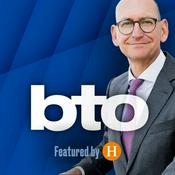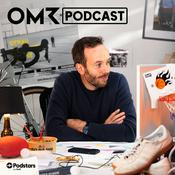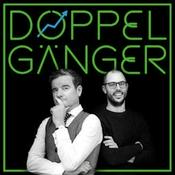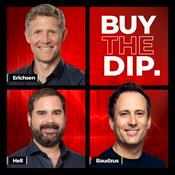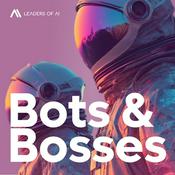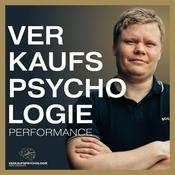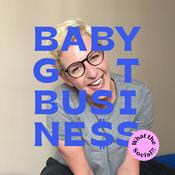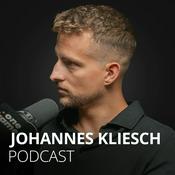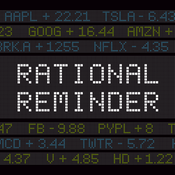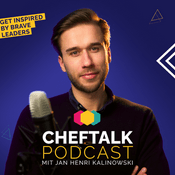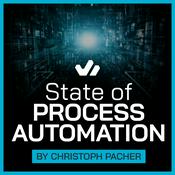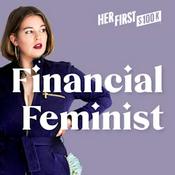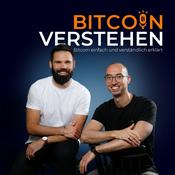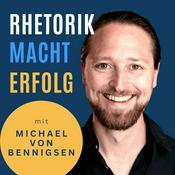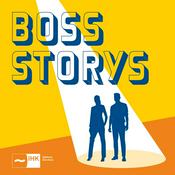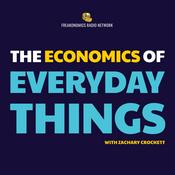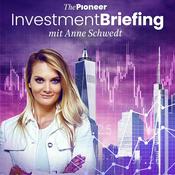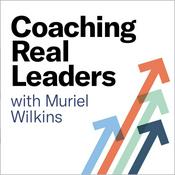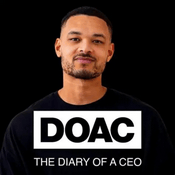268 Episoden
- Michael Ovitz co-founded CAA and helped reshape Hollywood, then took the same playbook into tech investing and advising founders.
In this conversation, he breaks down the operating rules that kept CAA from losing clients, and the personal disciplines that kept him grounded when the stakes got massive.
You’ll learn how to build momentum, tell the truth without hesitation, read for context instead of noise, hire people who raise the standard, and package ideas into outcomes.
-----
Upgrade: Get a hand-edited transcript and an ad-free experience, along with my thoughts and reflections at the end of every conversation. Learn more @ fs.blog/membership
------
Approximate Timestamps:
(00:00) Introduction
(00:58) Learning Machine
(03:41) You Don't Know Everything
(08:17) How People Go Wrong
(16:42) Don’t Fight Your Job
(18:28) Managing Relationships
(20:46) Hiring Top Performers
(26:47) Never Get High on Your Own Supply
(30:27) Identifying Greatness
(33:28) Meeting Marc Andreessen
(43:42) On Failure
(47:48) The Smartest Person I Ever Met
(52:49) The Genius of Patrick Collison
(57:51) A Good Idea Taken Too Far
(01:01:30) Information Consumption
(01:14:13) Business Education Curriculum
(01:16:28) Momentum
(01:18:16) Packaging
(01:24:43) What Would You Tell Your Younger Self?
(01:26:30) The Importance of Trust
(01:29:15) What is Success For You?
------
Newsletter: The Brain Food newsletter delivers actionable insights and thoughtful ideas every Sunday. It takes 5 minutes to read, and it’s completely free. Learn more and sign up at fs.blog/newsletter
------
Follow Shane Parrish:
X: https://x.com/shaneparrish
Insta: https://www.instagram.com/farnamstreet/
LinkedIn: https://www.linkedin.com/in/shane-parrish-050a2183/
Follow Michael Ovitz:
LinkedIn: https://www.linkedin.com/in/mikeovitz/
Book: https://amzn.to/4kn9jb9
------
Thank you to the sponsors for this episode:
Granola AI, The AI notepad for people in back-to-back meetings: https://www.granola.ai/shane
Check out the Granola Notes
Download The League App today and find your perfect match!
Learn more about your ad choices. Visit megaphone.fm/adchoices - Ray Kroc turned McDonald’s from a single roadside restaurant into a system built to scale.
At 52, after decades selling paper cups and milkshake machines, he opened the first McDonald’s in 1955 and helped grow it to nearly 8,000 restaurants worldwide.
This Outliers episode breaks down how standards, execution, franchising, and real estate created a business machine built to last.
-----
Approximate Timestamps:
(00:00) Introduction
(01:46) Turning Dreams Into Action
(10:05) The Multimixer
(15:51) America's Roadside Revolution
(22:58) Building the Machine
(32:14) What Ray Kroc Really Built
(43:12) Epilogue: Grinding it Out
-----
Upgrade: Get a hand edited transcripts and ad free experiences along with my thoughts and reflections at the end of every conversation. Learn more @ fs.blog/membership
------
Newsletter: The Brain Food newsletter delivers actionable insights and thoughtful ideas every Sunday. It takes 5 minutes to read, and it’s completely free. Learn more and sign up at fs.blog/newsletter
------
Follow Shane Parrish:
X: https://x.com/shaneparrish
Insta: https://www.instagram.com/farnamstreet/
LinkedIn: https://www.linkedin.com/in/shane-parrish-050a2183/
Learn more about your ad choices. Visit megaphone.fm/adchoices - Morgan Housel breaks down the exact framework he uses to build wealth, minimize financial stress, and buy freedom.
While most financial advice focuses on how to get rich, Morgan explains why the skills needed to stay rich are completely different.
You will learn why "boring" investing beats complex strategies, how to avoid the social traps that destroy wealth, and the specific equation for finding contentment.
Morgan Housel is a partner at Collaborative Fund and the bestselling author of The Psychology of Money.
Enjoy!
-----
Approximate Timestamps:
(00:00) Trailer/Introduction
(00:58) What Drives You?
(04:50) What Can Money Do For Us?
(07:22) Happiness vs. Satisfaction
(11:45) Becoming Financially Independent
(14:40) Survival and Contrast
(20:16) Ad Break
(21:05) Investing: Can You Beat the Market?
(22:32) When Is The Right Time To Buy a House?
(26:45) Housing Affordability and Equity
(28:39) Step by Step Investing
(35:08) Eras of Life and Spending In Those Eras
(43:50) Raising Kids With Money
(48:46) Social Media: Expectations and Comparison
(55:46) Lessons From the Vanderbilts
(01:01:21) Learning From Others Spending Habits
(01:07:51) Lessons From History: Depressions, Panics, Downturns
(01:11:40) Net Worth in Cash
(01:14:20) Passive Income and Financial Independence
(01:25:58) Massive Success: Doing It All Again
(01:32:27) What Should You Optimize For?
(01:38:24) What Do You Splurge On?
(01:40:38) What Can History Teach Us About Inflation?
(01:47:46) Index Funds Allocation
(01:53:36) What Is Success For You?
-----
This episode of the Knowledge Project is for informational purposes only. The views and opinions expressed by Shane Parrish or our guests are solely their own. Nothing in this conversation should be considered investment advice, financial guidance, or a recommendation to buy or sell any security. Always do your own due diligence or consult with a qualified financial advisor before making investment decisions. It's time to listen and learn.
-----
Psychology of Money: https://geni.us/my3K
Morgan Housel
X: https://x.com/morganhousel
Website: https://www.morganhousel.com/
-----
Upgrade: Get a hand edited transcripts and ad free experiences along with my thoughts and reflections at the end of every conversation. Learn more @ fs.blog/membership
------
Newsletter: The Brain Food newsletter delivers actionable insights and thoughtful ideas every Sunday. It takes 5 minutes to read, and it’s completely free. Learn more and sign up at fs.blog/newsletter------
Follow Shane Parrish:
X: https://x.com/shaneparrish
Insta: https://www.instagram.com/farnamstreet/
LinkedIn: https://www.linkedin.com/in/shane-parrish-050a2183/
------
Thank you to the sponsors for this episode:
Granola AI, The AI notepad for people in back-to-back meetings: https://www.granola.ai/shane
Check out the Granola Notes here.
Learn more about your ad choices. Visit megaphone.fm/adchoices - Peter D. Kaufman is the Chairman and CEO of GlenAir, the editor of Poor Charlie’s Almanack, and was a decades-long friend of Charlie Munger.
In a talk that was never meant to be made public, one of the world's greatest business minds reveals the secrets to multidisciplinary thinking.
Peter allowed the complete talk to be transcribed and posted on FS.
-----
Approximate Timestamps:
(00:00) Introduction
(01:49) Why is Multidisciplinary Thinking Important?
(07:27) How The World Works
(18:39) The Biggest Blind Spots in Business
(22:05) You Only Get One Life
-----
Dive into Mental Models: https://fs.blog/tgmm/
-----
Upgrade: Get a hand edited transcripts and ad free experiences along with my thoughts and reflections at the end of every conversation. Learn more @ fs.blog/membership
------
Newsletter: The Brain Food newsletter delivers actionable insights and thoughtful ideas every Sunday. It takes 5 minutes to read, and it’s completely free. Learn more and sign up at fs.blog/newsletter
------
Follow Shane Parrish:
X: https://x.com/shaneparrish
Insta: https://www.instagram.com/farnamstreet/
LinkedIn: https://www.linkedin.com/in/shane-parrish-050a2183/
Learn more about your ad choices. Visit megaphone.fm/adchoices - James Clear is the author of Atomic Habits, a global bestseller that has shaped how millions of people think about habits, consistency, and long-term change.
In this conversation, James explains how habits shape identity, why progress often stays invisible before it compounds, and how to design your environment so good behavior becomes the default.
You will learn how to stay consistent when motivation fades, stop quitting too early, and build habits that work across different seasons of life.
-----
Approximate Timestamps:
(00:00) Introduction
(00:56) The Role of Identity in Habit Formation
(03:38) Lack of Patience Changes the Outcome
(07:20) Seeing Invisible Progress
(09:58) Why Do We Change What's Working?
(13:46) Creating Conditions for Success
(17:44) Finding the Confidence to Start
(23:55) Playing to Win vs. Playing Not to Lose
(26:29) Internal Sayings to Live By
(30:36) Reputation
(34:32) Positioning in Business and Life
(44:36) Investment Philosophy
(47:18) Turning Reading Habits into Action
(50:31) Taking Notes While Reading...
(52:36) ...And Then What?
(56:06) Maintaining Focus on What You Want
(58:01) Lessons on Filtering Opportunities
(01:06:06) Longevity of Content
(01:07:21) Sequencing Through the Eras of Your Life
(01:11:22) What is a Habit?
(01:13:03) Is a Habit Working For You or Against You?
(01:15:20) Evaluation Framework for Habits
(01:18:32) Building or Replacing a Habit
(01:22:19) Social Media Detox
(01:25:34) The Most Important Upstream Habits to Create
(01:29:58) Relationship Check-In
(01:30:57) Thoughts on Popular Habits
(01:37:31) Become Stronger Than Your Feelings
(01:42:59) When Should You Deep Dive into an Idea
(01:48:12) Complexity vs. Simplicity
(01:54:40) Consistency vs. Intensity
(02:01:11) Learning New Subjects as an Adult
(02:06:40) Prioritization
(02:11:53) What is Success For You?
-----
Upgrade: Get a hand edited transcripts and ad free experiences along with my thoughts and reflections at the end of every conversation. Learn more @ fs.blog/membership
------
Newsletter: The Brain Food newsletter delivers actionable insights and thoughtful ideas every Sunday. It takes 5 minutes to read, and it’s completely free. Learn more and sign up at fs.blog/newsletter
------
Follow Shane Parrish:X: https://x.com/shaneparrish
Insta: https://www.instagram.com/farnamstreet/
LinkedIn: https://www.linkedin.com/in/shane-parrish-050a2183/
Learn more about your ad choices. Visit megaphone.fm/adchoices
Weitere Wirtschaft Podcasts
Trending Wirtschaft Podcasts
Über The Knowledge Project
Master the best of what other people have already figured out.
Deep conversations with the best that go beyond the usual advice to uncover the timeless principles that drive success.
If you enjoy the show, please hit the follow button.
Podcast-WebsiteHöre The Knowledge Project, Handelsblatt Today – Der Finanzpodcast mit News zu Börse, Aktien und Geldanlage und viele andere Podcasts aus aller Welt mit der radio.de-App
Hol dir die kostenlose radio.de App
- Sender und Podcasts favorisieren
- Streamen via Wifi oder Bluetooth
- Unterstützt Carplay & Android Auto
- viele weitere App Funktionen
Hol dir die kostenlose radio.de App
- Sender und Podcasts favorisieren
- Streamen via Wifi oder Bluetooth
- Unterstützt Carplay & Android Auto
- viele weitere App Funktionen

The Knowledge Project
Code scannen,
App laden,
loshören.
App laden,
loshören.



